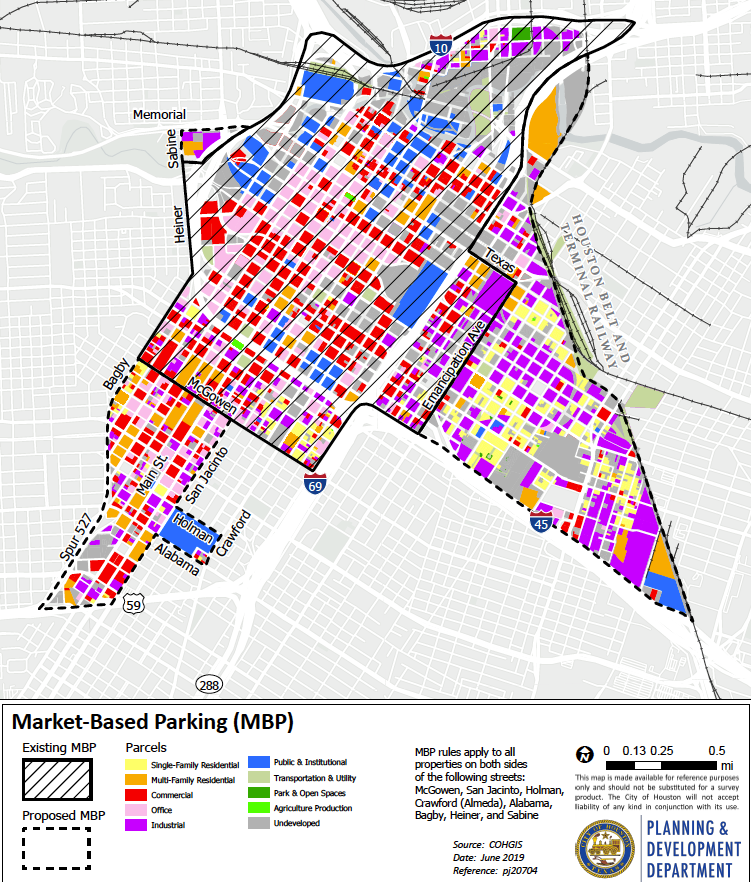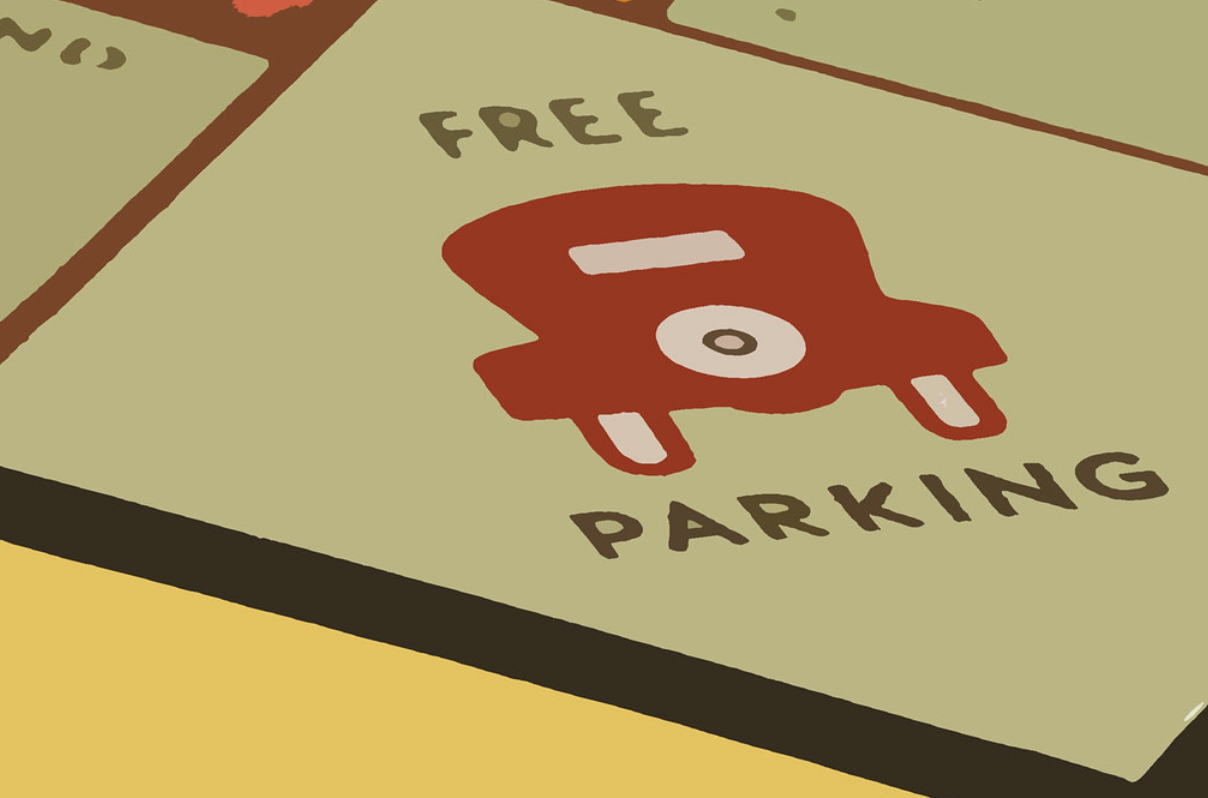After almost one year of presentations and stakeholder engagement, Houston City Council voted Wednesday to approve the extension of market-based parking from downtown into the East End and parts of Midtown.
Market-based parking exempts areas from the citywide parking minimums, allowing property owners to provide the number of off-street parking spaces "they believe are necessary to service their customers," according to the planning department. "This change gives property owners more flexibility in the use o their property and removes a bureaucratically-imposed minimum that is based on one-size-fits-all analysis." The area, notes the planning department has "sufficient multimodal transportation system, high transit ridership, and the existence of significant surface and parking garage spaces."
The expansion was supported by the East Downtown Management District and the Midtown Management District.

Downtown (shown inside the solid black lines) is already included in the minimum parking exemption area. The amendment extends the area into the East End and parts of Midtown. Source: City of Houston.
"It seems to make sense," said Councilmember Michael Kubosh, referring to the recent development in East Downtown. The change, he said, will benefit people, "who want to be able to walk to a restaurant or a store. People like me, well, I’m going to have to be dropped off."
But some council members expressed hesitation about the push to lift parking requirements. "I'm glad to see that there appears to be a carve out and a compromise that is focusing these concentrated no parking requirements primarily along the Main Street corridor and to the west," said Councilmember Mike Laster about the exemption's expansion into Midtown. But, he argued, "the market has determined that they can make money as it is," he said. "We have parking requirements to protect neighborhoods," he argued.
"More parking lots in our neighborhoods do not protect our neighborhoods," Councilmember Robert Gallegos, whose district includes East Downtown, responded. He also said he reached out to the planning department to enhance transit-oriented development and was told there would be additional proposals brought to council later this year.
Councilmember Greg Travis, the only council member to vote against the amendment, insisted parking spaces were necessary because people wouldn't walk to destinations. "Today? Walk for two blocks, it's not going to happen."
In response, Mayor Sylvester Turner was quick to point out that the majority of businesses in the affected areas were supportive. The Kinder Houston Area Survey, meanwhile, has tracked the increasing desire for walkable urbanism among Houston-area residents.
In addition to lifting the minimum parking requirements, the amendment will "reflect the current development trends," according to the planning department, as well as "encourage the retention and adaptive reuse of existing structures by eliminating the need to demolish a structure in order to create a parking lot."
The amendment, which excludes certain residential areas within the expansion area, also allows for "the creation of alternative parking standards within the defined area to account for unique parking demands."
Urbanists and advocates for more pedestrian-scale planning have long highlighted the consequences of parking minimums and policies that prioritize parking.
"Parking is the single biggest land use in most cities," said Donald Shoup, a research professor at the University of California, Los Angeles' urban planning department, back in 2018 upon the release of his book, Parking and the City. "[T]here’s more land devoted to parking than there is to housing or industry or commerce or offices," Shoup said.
“The way cities approach parking has massive consequences for how we travel, how our cities look, and how and where we build housing,” said Michael Manville, assistant professor of urban planning at UCLA and a contributor to the book.
Elsewhere Shoup has described parking minimums as "fertility drugs for cars." And in 2016, Shoup summarized the problems with minimum parking requirements, writing that they, "subsidize cars, increase traffic congestion and carbon emissions, pollute the air and water, encourage sprawl, raise housing costs, exclude poor people, degrade urban design, reduce walkability and damage the economy."
In Houston, Councilmember Karla Cisneros said Wednesday that the council's decision to expand the parking minimum exemption is part of recognizing where Houston is headed. It "will be good for small business development and," she said, "will lead to better streetscapes in this transition period of becoming an increasingly urban city, which will help us be greener, healthier and a more walkble Houston."

